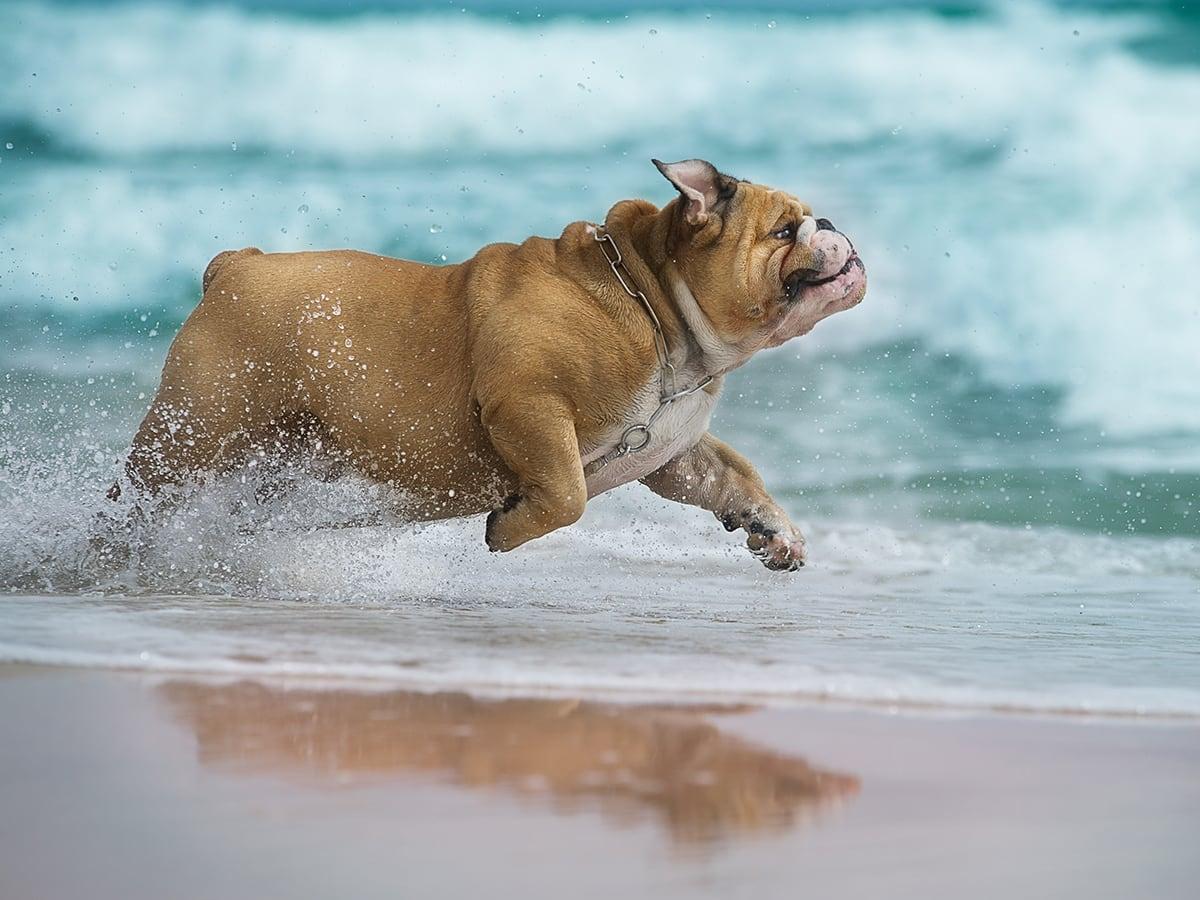Looks like you’re preparing for the next Canine Olympics! And that you’ve already mastered the first two phases of the triathlon – fetching and agility. The next one up is swimming. We know there isn’t one, but it would be fun, isn’t it? Or are you planning a free dive or scuba with your dog?
While dogs aren't exactly known for their free-diving prowess, they do have some natural abilities that help them navigate watery adventures. However, not all dogs can swim naturally. Some breeds are known to have better swimming abilities than others. The medium to large-sized breeds find it comparatively easier to swim, whereas the short and toy ones struggle.
The brachycephalic breeds like French Bulldogs and Pugs, ones with shorter snouts and faces, find it extremely challenging to swim. Their sturdier bodies are difficult to carry in the water with those little legs. The list here includes – (2)
Pug
Basset Hound
Corgis
Boxer
Shi Tzu
Scottish & Bull Terrier
Dachshund
Maltese
Mastiff
And more…
On the other end, there are some breeds that are excellent swimmers as they were bred for water jobs. These include – (2)
Spanish & Portuguese Water Dog
American & Irish Water Spaniel
Standard Poodle
Labrador Retriever
Golden Retriever
Nova Scotia Duck Tolling Retriever
English Settler
Newfoundland
Lagotto Romagnolo
Otterhound
And more…
But before you dive in (literally), there are some questions to which you should know the answer.
Can Dogs Swim Underwater?
Dogs also possess the mammalian diving response as we do, which helps us go underwater. But again, this doesn’t come naturally to all dogs. The breeds we mentioned above that are natural swimmers, find it easier to hold their breath underwater.
But does that mean if your dog is not on the list, they will not be able to swim ever? The answer is no. Dogs can learn to hold their breath underwater and swim with proper training and patience. (2)
Can Dogs Hold Their Breath for a Long Time?
The mammalian diving reflex is a unique set of evolutionary adaptations leftover from a time when all life developed in the oceans. As soon as the face comes in contact with water, the heartbeat slows down by around 10%-25%. This helps the body function with less oxygen. And this applies to both, humans and dogs. (1)
Once the face goes below the surface, the windpipe automatically shuts so that the water does not go into the lungs. In such scenarios, dogs can hold their breath for up to 5-10 seconds. Smaller and brachycephalic dogs are on the lower side of this while the big ones can go up to 10 seconds. (1)
Can Dogs Drown?
Yes, even the best of water-puppies can drown. Just as we humans can get exhausted underwater and end up ingesting a lot of pool or ocean water, your dog can also feel the same. If your dog is unable to get out for a breath, all the inhaled water can cause something called as a ‘near drowning’ experience.
They can also go through ‘dry drowning’ - an inflammation and infection of the lungs, which can occur a few days after swimming if too much water has entered a dog's lungs.
Colder waters can get your dog tired faster. Strong currents and tides with no way of exit for the dog can also cause a big problem.
Should Dogs Swim in the Ocean?
Yes, they can but only after you’ve assessed the swimming skills and endurance of your dog. Even then, there can be multiple risks attached to letting your dog swim in the ocean. These include – (2)
Strong Currents – Some of them have the potential to drag the best of human swimmers out to sea. We are only talking about our four-legged canines here. Think of it this way – let your dog swim in the waters you would let your small kid in.
Exhaustion – Pups may sometimes get over-excited and not realize when they get tired of playing in the ocean. If exhausted, they may find it extremely difficult to breathe or even to get back to the shore at times.
Dehydration – The salty water of the ocean can quickly dehydrate your dog and even cause diarrhea. You need to ensure access to fresh water at all times.
There’s nothing wrong in taking your dog for a nice swim in the ocean. It would be a day to remember for them. But you need to take care of the above things for their safety. Do not forget to locate the lifeguard in advance in case of any emergency. And always, we repeat, always keep an eye on your dog while they are swimming.
More About Spot Pet Insurance
As we said, there is no harm in gifting your dog a nice swim day at the beach or at the pool. But there are risks attached. Some of them may even need surgery for treatment. In such cases, pet health insurance helps to save up to 90% of all the costs involved.
Dog Insurance can help provide financial assistance for eligible veterinary care in case of unexpected accidents, illnesses, or injuries. Our plans can help pet parents manage the eligible costs of covered veterinary care and help ensure that their pets can receive the best treatment possible. Here are some ways that Spot pet insurance plans can help:
Covers Unexpected Veterinary Costs: Spot pet insurance plans cover the eligible costs of unexpected veterinary treatments, such as emergency surgeries, X-rays, and prescription medications for covered conditions.
Customizable Plans: Choose your annual limit, reimbursement rate, and deductible from a range of options, and create the plan that will fit the needs of your pet and your budget.
Peace of Mind: With Spot pet insurance plans, pet parents can know that they can provide the best care for their pet with less worry about the cost.
To learn more about Spot Plans or to get a free quote, click here.

The resident animal enthusiast at Spot. I have a lifetime of pet parent experience. If it has fur, feathers, or scales, I’ve probably shared my home with it. I aim to be a reliable source, blending experience with a dedication to the well-being of pets.
Mundy, J. (2022, August 30). Can dogs hold their breath? DogTime. https://dogtime.com/how-to/pet-safety/100159-can-dogs-hold-their-breath-if-so-how-long-can-they-be-underwater












